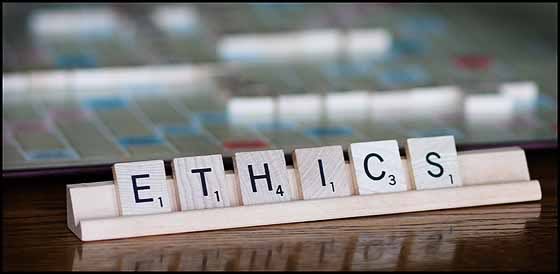Ethics Every Day: Defining Ethics
September means four things: classes have resumed, the leaves are beginning to change, football season is back and Ethics Month has arrived.
PRSSA Ethics Month is a month dedicated to bringing awareness of ethical practice to public relations professionals through webinars, Twitter chats and blog posts. This year’s theme is Ethics Every Day.
As public relations practitioners, it is our obligation to uphold the industry standard of ethics in the work that we do.
So, what are ethics?
Some say that ethics are what my intuition says is right or wrong, being ethical is following the law, ethics embody societal standards and what is deemed acceptable or ethics have to do with my religious beliefs.
Ethics cannot be solely based on intuition because a person’s feelings may not coincide with what is right, ethics cannot be solely defined by law because laws can deviate from what is right (e.g., slavery before the Civil War), ethics cannot be solely defined by society because societies can be corrupt and ethics cannot be solely defined by religion because then ethics would only apply to religious people.
Merriam-Webster defines ethics as “the discipline dealing with what is good and bad and with moral duty and obligation.”
PRSA maintains the Code of Ethics as a guide for public relations professionals to carry out their ethical responsibilities. The Member Statement of Professional Values, composed of the core values of our Society, sets the foundation for the Code of Ethics. These values include advocacy, honesty, expertise, independence, loyalty and fairness.
The Code and other ethics resources are also available at the touch of a button. In collaboration with MSLGROUP, PRSA created the PRSA Ethics app. The app is available for free in Apple’s App Store and the Google Android Market.
The good, the bad and the ugly.
As I’m sure many of you know, public relations professionals don’t have the best historical reputation for ethical practice. Many firms uphold the values of ethical work well, while some fall short. To better understand some of these ethical values, here are some examples:
Good: Campaign for Real Beauty
In 2004, Dove launched the Campaign for Real Beauty with Edelman in an effort to bring about societal change and broaden the discussion and definition of beauty. The ultimate goal of the campaign was to inspire women to feel beautiful and challenge the societal standards of beauty.
Bad: Don’t Be a Maybe
In 2014, the cigarette company Marlboro launched an international campaign through Philip Morris International aimed at young people with the slogan, “Don’t Be a Maybe – Be Marlboro.” The ads featured young people seeming adventurous and light hearted, encouraging youth to smoke Marlboro cigarettes to be more like the people featured in the ads. The campaign was banned in some countries because it was a violation of tobacco control laws.
Ugly: Brian Williams at NBC
Brian Williams, former news anchor for NBC News, lied about being in a damaged helicopter over Iraq in 2003. NBC did not immediately suspend him and tried to cover up his dishonesty. NBC did not fire Williams; they demoted him to MSNBC as a reporter. Williams claims to not remember the details, but he was clearly being dishonest.
Why are ethics so important?
Unethical decisions affect the present and the future of a brand or organization. Rebuilding a reputation takes time and sometimes the damage is irreparable.
Ethics are paramount in public relations. With our industry constantly changing, how we act is the one thing that we have control over. Ethical misconduct is not only a poor reflection on yourself but also the organization you are working for. As members of PRSSA, we are responsible for maintaining the Code of Ethics and values that are necessary for success. Upholding good ethical conduct is vital to building positive relationships with your colleagues and clients, and as future leaders of the industry, it is on our shoulders to maintain these standards.
Want to chat more about ethics? Contact PRSSA National Vice President of Advocacy, Victoria Lewis, for ways to get involved and keep the conversation going throughout Ethics Month.
—
Krista Watson is a member of the PRSSA Chapter at Loyola University Chicago. Follow her on Twitter and connect on LinkedIn.

